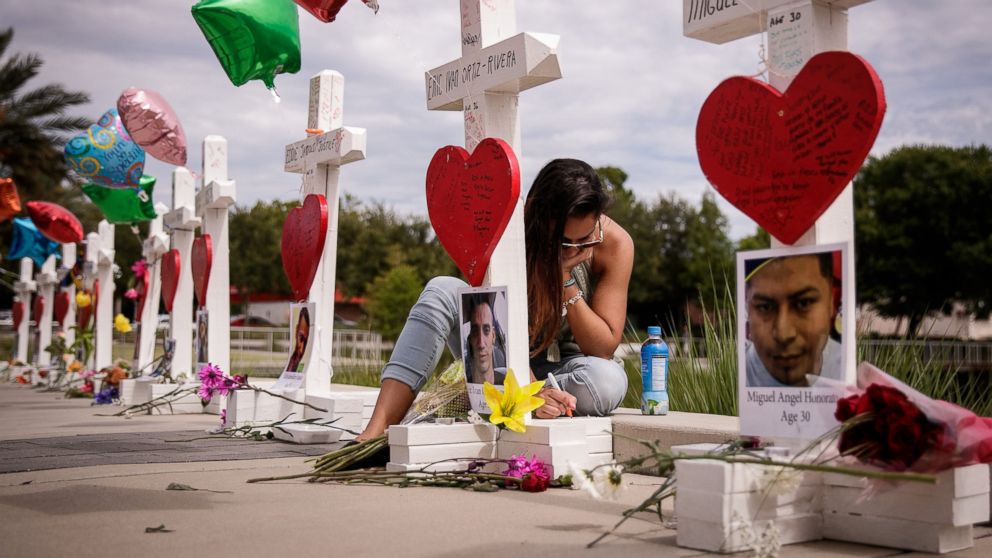Mass Shootings May Be Affected by 'Media Contagion': Researchers
A study seeks to understand the increase in mass shootings.

— -- Alarmed by an increase in mass shootings in the U.S., researchers are examining whether the 24-hour news cycle and social media may play a role.
This week, two media researchers from Western New Mexico University presented a paper that looked at whether the incidence of gun massacres may be affected by what they call a "media contagion."
At a meeting of the American Psychological Association, researchers Jennifer Johnston and Andrew Joy gave findings from their research examining past studies on when gun massacres occur and profiles of the perpetrators.
In particular, they looked at a 2015 study that examined 57 billion tweets, of which 72 million used the word “shooting” and 2 million the words “mass murder” or “school shooting."
One of the most startling of Johnston and Joy’s findings is that the more tweets that occur about a mass shooting, the higher the chance of another gun massacre occurring soon after.
If, after a school shooting, at least 10 out of every million tweets mentions the incident, the likelihood that there will be another school shooting increases to 50 percent within eight days after the initial violence and to 100 percent within 35 days afterward, according to the paper.
Johnston told ABC News that she was struck that the number of mass shootings has increased at a time when homicide in general is not on the rise, and she wanted to understand why, calling it a "complicated issue."
She said that the rise in gun massacres began after the year 2000, when the average of two to three mass shootings per year climbed to 20 such incidents in 2015, “a three-fold increase over a 15-year time span."
The evidence points to the idea that mass violence is likely "contagious," she said.
“Now we have some pretty solid evidence that it is," she said. "There is a clear pattern that is not due to chance.”
From combing through multiple studies, Johnston and Joy also found that the perpetrator of mass shootings usually "desired fame and wished to emulate a previous mass shooter."
"We would argue identification with prior mass shooters made famous by extensive media coverage, including names, faces, writings, and detailed accounts of their lives and backgrounds, is a more powerful push toward violence than mental health status or even access to guns," the authors write in their presentation paper.
The researchers suggest that the media refrain from giving details about mass shootings -- including names, photos, or a perpetrator's manifesto after a mass killing – and advocated instead for a “Don’t Name Them” campaign developed by the Advanced Law Enforcement Rapid Response Training research division at Texas State University at San Marcos along with the FBI and families of victims.
The authors say that holding back details about gun massacres would deprive killers from getting the publicity they want and could also prevent mass shootings from inspiring copycats.
Nancy Mramor, a media and health psychologist based in Pittsburgh, said the motive of perpetrators in mass shootings cannot be boiled down to a single influence. But she said there is precedent for the media to deliberately change how it covers events so as not to encourage others to perpetrate similar violence. She noted that many media companies have over the years reduced the amount of detail they give about suicides because there is a known copycat effect.
“What happens if you focus intently on the perpetrator? You provide them with 15 minutes of fame," Mramor said.




